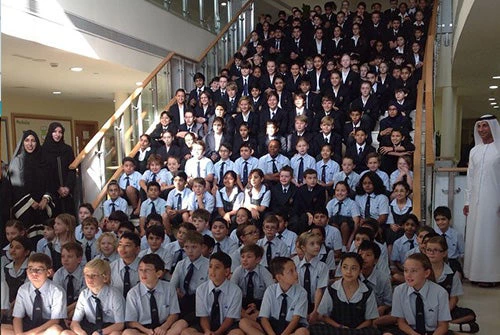 These days, if you are looking for a new cellphone and wondering which one to buy, there are many reliable sources to turn to: a recent copy of
Consumer Reports is a good start, for one. But if you are choosing a school for your child, possibly one of the most significant investments you can make, an informed decision can be far more elusive. While you may hear of the school’s reputation, learn what others think, or visit the school, unlike phones, it is often difficult to know just how good a school really is. As consumers of educational services, we often find ourselves largely ‘in the dark’.
These days, if you are looking for a new cellphone and wondering which one to buy, there are many reliable sources to turn to: a recent copy of
Consumer Reports is a good start, for one. But if you are choosing a school for your child, possibly one of the most significant investments you can make, an informed decision can be far more elusive. While you may hear of the school’s reputation, learn what others think, or visit the school, unlike phones, it is often difficult to know just how good a school really is. As consumers of educational services, we often find ourselves largely ‘in the dark’.
This situation is changing, thankfully, as a regional move towards greater transparency now also includes education. A leading example is found in the work of the Knowledge and Human Development Authority (KHDA) of Dubai, the government entity responsible for overseeing the private education sector. As the city has grown dramatically over the last two decades, the demand for private education has grown with it, reflecting the expanding number and diversity of expatriates. Today, 88% of all students in Dubai attend private schools in a system which includes fifteen distinct curricula (UK, US, IB, Indian, Emirati, French, among others).
Recognizing the importance of good schools for the city-state, the KHDA has given itself the mandate of ‘switching on the lights’ for all stakeholders on private school performance. Essentially, what it has done is simple: it has designed an inspection framework that is both flexible enough to capture all aspects of the private school system’s diversity, while at the same time focusing attention on improving education quality. Each year all schools are inspected and rated -- as “outstanding”, “good”, “acceptable,” or “unsatisfactory” -- and then these ratings are made public. They are put online, published in the news, and there is even a KHDA app.
A recent World Bank report finds that the transparency created by this approach has had several positive consequences. It has led to better informed stakeholders (families, schools, the investment community); it has stirred public debate about the importance of school quality; and, finally, and most significantly, it has created higher expectations about quality among education consumers and providers.
After just five years in operation, 51% of students are now in schools rated “good” and “outstanding”, compared to 30% in 2008. Dubai’s participation in two global studies, Trends in International Mathematics and Science Study and the Programme for International Student Assessment, revealed a steady improvement in overall student achievement. There is nevertheless much to be done. Many schools still rate only as “acceptable”. KHDA continues to refine the system to make it a more effective catalyst for encouraging schools to improve their performance.
The approach KHDA has taken is a significant one because it demonstrates how innovative governance designs can help steer an expanding education sector towards quality improvements. In this respect, there are valuable lessons emerging from Dubai, as KHDA’s approach represents an emerging Regional best practice worth replicating in both private and public education markets.
Soon, choosing a school in Washington, DC, Shanghai or Rio could be as transparent a process as buying a phone – if KHDA’s lead is followed.


Join the Conversation